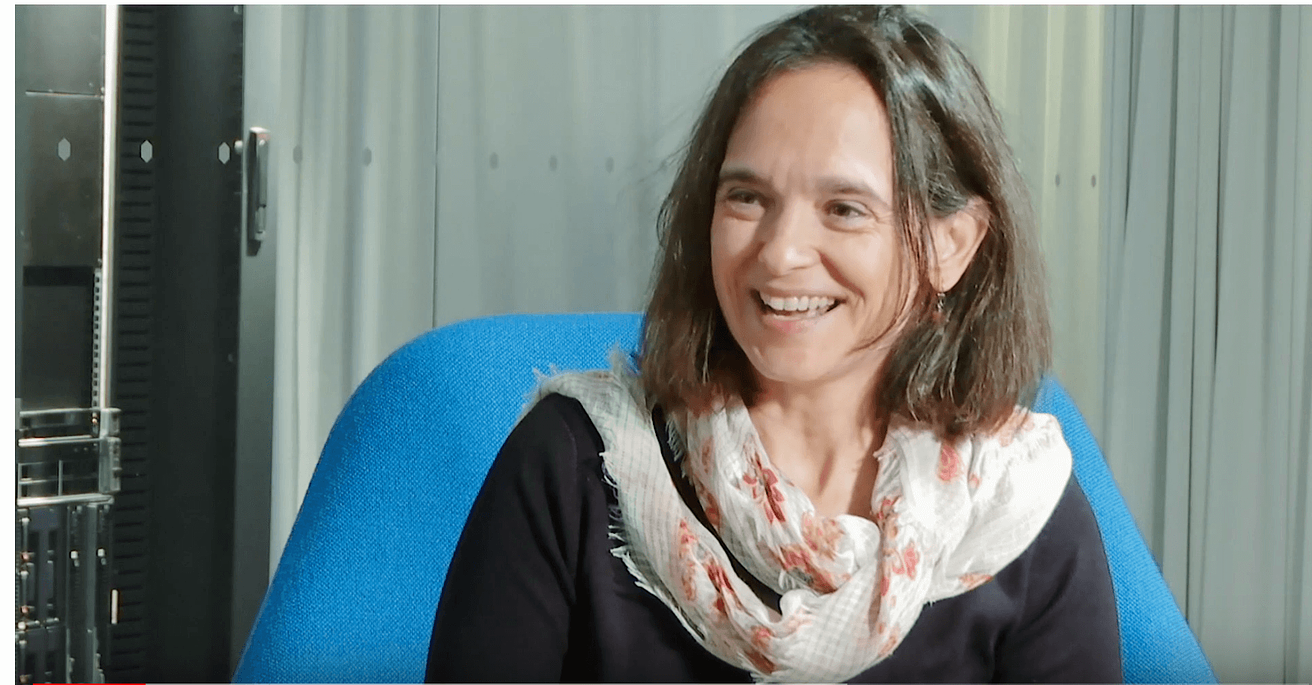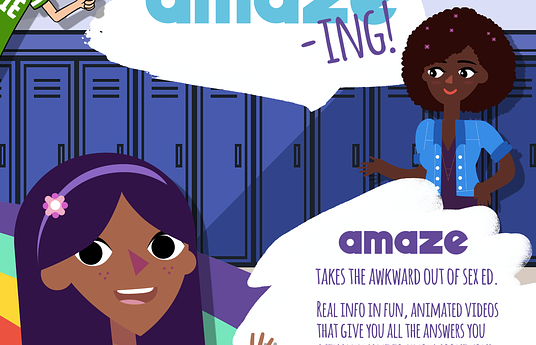Nicole Cheetman is the international Youth Health and Rights Division Director at Advocates for Youth. She attended the 2018 HundrED summit on behalf of amaze.org. Amaze.org delivers information about puberty, growing up and sexual health to very young adolescents using short animated films on YouTube. There are also resources available for parents and educators. The initiative started 2 years ago in the United States and has since been launched in Latin America and Southern Africa.
What are the main problems and hurdles to overcome currently in sexED?
There are a lot of challenges facing young people around the world and as it relates to the delivery of sexual education many countries are making great efforts to try and deliver sexuality education but in many cases are struggling to do so. Young people aren’t getting the information that they need, want and deserve. This is why amaze is seeking to provide another way to support other efforts that can deliver information that is honest, fun, age-appropriate and inclusive. Particularly for 10-14-year-olds for which there is often less programming and less information available to them.
How has the internet changed how we should approach sexED?
Interestingly, I think it offers opportunities and challenges, one of the reasons we’ve started the amaze initiative is because with the advent of the internet and access to technology and digital information many young people are turning to the internet for information about their sexual health. There’s a lot of information out there that’s not very good, that is inaccurate so at the same time then it provides an opportunity to deliver that information in a way that’s appropriate, correct and scientifically accurate.
How does Amaze.org make sexED relevant for today’s students?
Amaze.org makes the information relevant for today’s students by engaging them in sort of the development of the videos as well as sexuality education experts. We’re trying to meet adolescents where they are, and we have seen and heard from them that they’re on YouTube. So, the platform is very important as well as other social media platforms to support access to the videos. But also, the content, content that is fun and affirming and is not fear based is really important for young people. That’s what they’re looking for and that’s what we’re trying to provide.
What advice would you give to educators to approach sex ed with their students?
I would advise them to approach sexED just like they do their other subjects in the sense of providing correct information. That is what young people need and also to recognize that it doesn’t take, in many cases, additional effort to do this to provide sexuality education and hopefully there are resources for teachers, in many places there aren’t but to seek them out to support the work that they are doing. Amaze does offer support to teachers through amaze.org, there’s lesson plans for example that can help teachers address the issues that the videos are addressing and some lesson plans that actually include the video in them but I think recognizing that young people need and want this information and trying to provide them with honest information about sexual health is really important.
What impact have you seen from your videos being put into practice?
We hear through the comments on the social media platforms. We get a lot of comments from young people that are very affirming of the information that we’re providing. In addition, we’ve recently done a preliminary evaluation that has some encouraging results. We had young people that viewed the amaze videos and young people that didn’t view the amaze videos in the United States and found that those who had viewed some of the amaze videos for example had increased knowledge about consent and sexual assault. They also had more accepting attitudes about diverse sexual orientation, they self-reported increased knowledge of health and 40 % of them said that they would share the videos with friends, so we find that very encouraging. We also try to track through little surveys that pop up sometimes after the videos. We ask questions: what is the key message you heard in this video? Things like that and those things keep us informed about what our audience is gaining from the videos and their reactions to the videos.
To learn more about Amaze.org, visit their Innovation Page on HundrED.

